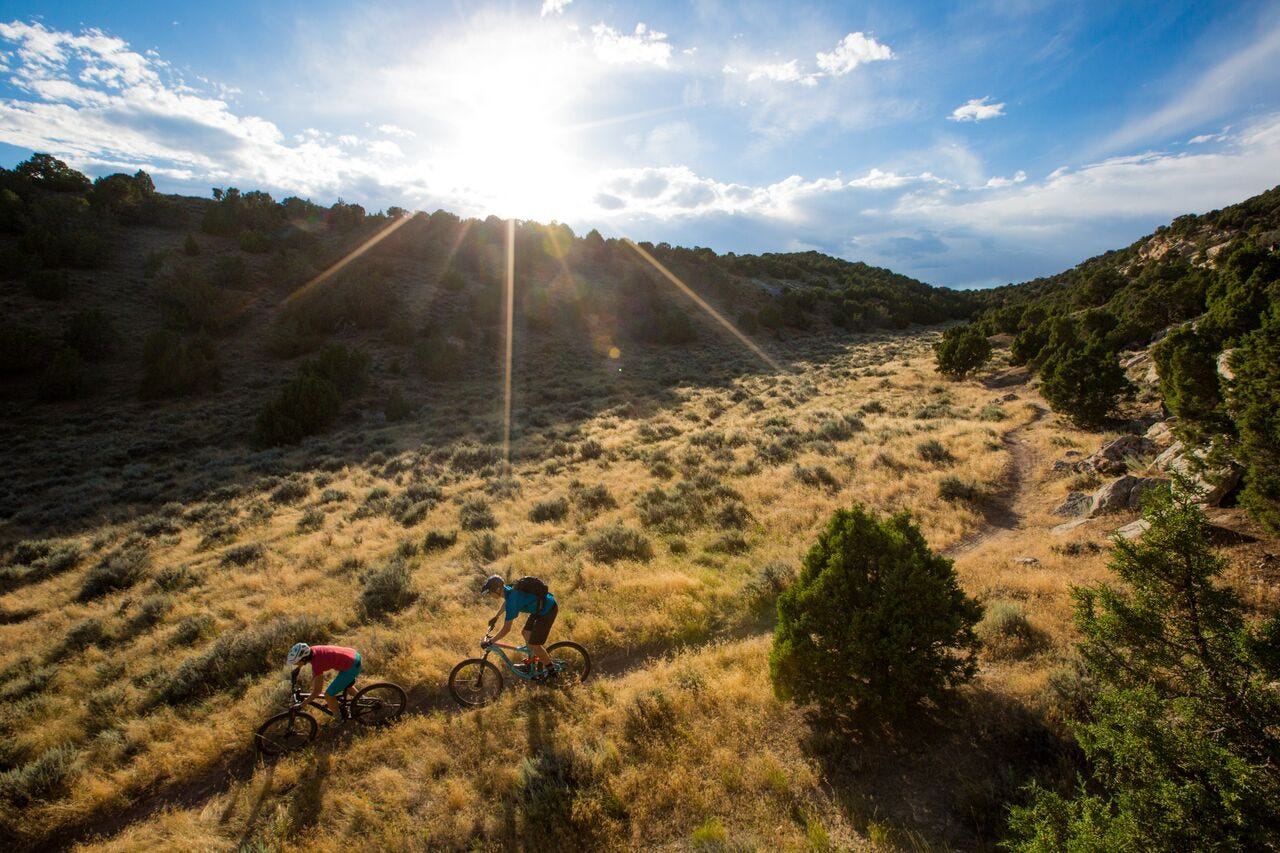
We were less than 200 yards down the trail when Jessie’s dog, Kali, stopped to defecate. Jessie pulled out a bag to pick it up. And I pondered the quote often attributed to Dostoyevsky: “If God does not exist, anything is permissible." (In fact, it was a question posed by a fictional character in The Brothers Karamazov: “without God and immortal life? All things are permitted then, they can do what they like?”)
Jessie and I were strangers to this trail. Just driving through, we wanted to get the dogs, and ourselves, some exercise. It was a warm spring Sunday. A dozen cars at the trailhead. A nicely-developed network of hiking and biking trails on high-desert public land administered by the Bureau of Land Management (BLM). We were grateful to have the option to walk here, and wanted to follow the rules. But what were they?
At the trailhead, a sign said dogs must be leashed or under voice command. But it said nothing about their… products. More importantly, there was no garbage can. If she picked up the poop, she would have to carry it—not only for the rest of our walk, but also for the next 200 miles of our drive. “I’m not sure you want to pick it up,” I said.
I immediately felt bad. In urban areas—and even in the small Western towns where we both live—you have a moral and even a legal obligation to pick up after your dog. If you don’t, everyone’s lives will become overloaded with shit.
But with a city comes infrastructure. Parks have public trash cans and sometimes even bag dispensers. Neighborhoods have private trash cans, and I know that I personally am delighted for dog-walkers to use my trash can to keep the lawn and sidewalk clean. Everyone in the community wants to make it easy for everyone in the community to follow the rules, because that makes life better in the here and now. I’m not sure that God or immortality play into it at all.
This trailhead was a dozen miles from the nearest town. That meant it didn’t have the trash infrastructure. It also meant that we could be tempted to see it as “nature” rather than “city.” Don’t different rules apply in nature? Isn’t enjoying nature a morally upright activity, such that anything we do in nature is also morally pure?
The science says no. In busy areas, especially scenic streamsides, dog poop can overwhelm a once-isolated ecosystem. Fragile conditions can be threatened by recreation as much as heavy industry. I’ve seen trailheads to wilderness areas with signs that tell you to pick up after your dogs, and trash cans to accommodate your work.
But there was no such sign or infrastructure here. Maybe, in this particular ecosystem, with this particular level of use, dog poop was OK? After all, it is organic matter. In small doses, it can fertilize.
“I should get it off the trail!” Jessie said. Kali had chosen an unfortunate spot. I agreed: nobody wanted to step on dog poop, or run a bike tire through it. We owed this community at least that much.
But how much more? I longed for local knowledge. For an understanding of local standards. I felt mildly ashamed of being a tourist: of just showing up at a place without knowing its rules. Again, God and immortality didn’t play into it. Instead, in order to understand what things were permissible, I needed to be a member of a specific geographical community. And here, I wasn’t.
Eventually I spotted a nearby cowpie. Apparently at certain times of the year the BLM leased this land for cattle grazing. To me, that implied an ecosystem that had some comfort with animal excrement. We decided to just flick this stuff off the trail.
I suppose one could argue that Dostoyevsky’s conception of God could be broad enough to include things like “science” and “community” and “local rules.” But Kali didn’t seem interested in such questions—she trotted 200 yards and then stopped to poop again.




Since you led with Dostoyevsky, I think metaphor: what man(kind) does, in sin.